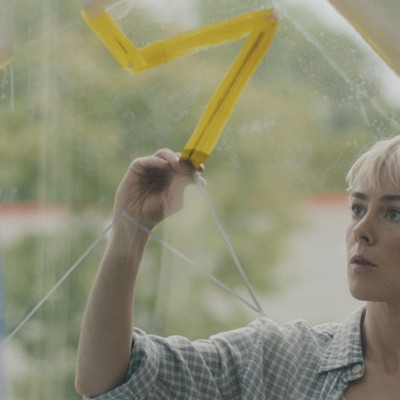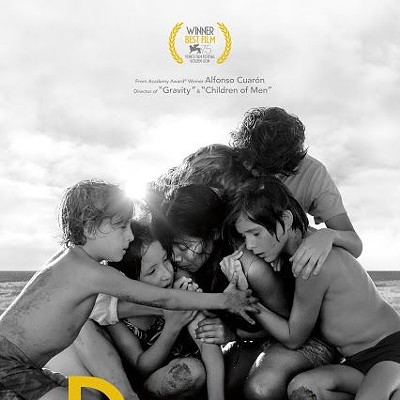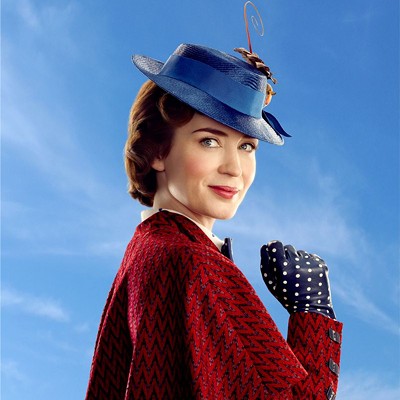Pineapple Express
It’s been a roller coaster year for Judd Apatow, who as producer seems to have had a hand in practically every 2008 comedy not starring Mike Myers or Eddie Murphy. The lamentable Drillbit Taylor was quickly followed by the bright Forgetting Sarah Marshall, and now the mediocre Step Brothers has moved aside for the rollicking Pineapple Express. Pineapple Express doesn’t benefit from the polished characterizations or heartfelt scenarios of Apatow’s big hits The 40-Year-Old Virgin and Knocked Up, but as far as crude, rambling, shaggy-dog comedies go, this one’s better than most of the modern-day crop. Here we have process server Dale Denton (Seth Rogen) and drug dealer Saul Silver (James Franco); they’re forced to take it on the lam after Dale witnesses a drug lord (Gary Cole) and a crooked cop (Rosie Perez) commit cold-blooded murder and the killers are able to trace the rare pot (“Pineapple Express”) that Dale leaves at the crime scene back to the eternally fried Saul. Pineapple Express boasts a pair of major surprises. The first is that instead of turning to a regular member of his troupe to direct the picture, Apatow chose David Gordon Green, known for micro-budgeted indie films (All the Real Girls, George Washington). The second is that Franco, generally the blandest of pretty boys, succeeds in his change-of-pace role as a long-haired stoner who has trouble understanding the words that anyone speaks to him (when Dale tells him he’s a process server, Saul replies, “You’re a servant? Like a butler? You shine shoes?”). Not surprising in the least is that Rogen again scores in his role as a disheveled slacker with a way with words.
Swing Vote
There’s a terrific segment in the middle of Swing Vote in which the two men running for U.S. president, the Republican incumbent Andrew Boone (Kelsey Grammer) and the Democratic challenger Donald Greenleaf (Dennis Hopper), are persuaded by their campaign managers (played by Stanley Tucci and Nathan Lane, respectively) to do anything to win the favor of Texico, N.M., resident Bud Johnson (Kevin Costner), whose single vote will decide the outcome of this election. So when Bud lets it be known that he doesn’t care what people do in the privacy of their own homes, even homosexuals, the right-wing Boone is forced to appear in an ad in which, surrounded by members of the gay community, he cheerfully embraces diversity. And when a comment by Bud is misunderstood to mean that he harbors ill will toward Mexican laborers, the left-wing Greenleaf reluctantly films a TV spot in which he rails against illegal immigrants, even as real immigrants hired as extras run across the set behind him. These bits (as well as a couple of others) are funny, biting and provocative, and they demonstrate that Swing Vote had an opportunity to emerge as a scathing political satire (e.g. Warren Beatty’s excellent Bulworth) rather than a timid political comedy (e.g. Robin Williams’ execrable Man of the Year). Sadly, Swing Vote largely fails to capitalize. The central thrust of the movie isn’t the election as much as it’s the familial bonding between Bud and his daughter Molly (Madeline Carroll). That’s all good and sweet -- and Costner delivers a fine performance as a man whose love for his child eventually rejuvenates him -- but we see that type of sentimental film just about on a monthly basis. We’re here for the hard truths about American politics, but this movie shies away from them every chance it gets.
The Mummy: Tomb of the Dragon Emperor
1999’s The Mummy was a barely passable Indiana Jones rip-off, while 2001’s The Mummy Returns proved to be rather dismal. This one, though, is the worst of the lot -- and certainly the most boring. Somehow, I managed to stay awake during the grueling expository sequences. I’m not referring to the prologue showing how, in the China of 2,000 years ago, a sorceress (Michelle Yeoh) places a curse on an evil emperor (Jet Li) who can now only be awoken by a drop of human blood; I’m talking about the excruciating scenes in which retired adventurer Rick O’Connell (series star Brendan Fraser) and his wife Evelyn (Maria Bello, replacing Rachel Weisz after the latter declared, “Screw this; I have an Oscar now!”) mope around their English estate in 1946 while grown son Alex (Luke Ford) is (unknown to them) off digging up the emperor. Plot contrivances reunite all of them in Shanghai, and from there, the gang is forced to fight the now-revived emperor. Is that really Maria Bello looking so glum up there on the screen, doubtless recalling how her formidable talents are more suited to the likes of A History of Violence and The Cooler than to treacle like this? And do scripters Alfred Gough and Miles Millar think that audiences will be impressed by dialogue that basically consists of variations on Rick yelping, “Well, here I am fighting mummies again!”?
Step Brothers
The battle for the title of Hollywood’s Ultimate Man-Child finds Will Ferrell finally overtaking Adam Sandler. The law of diminishing returns -- to say nothing of Step Brothers’ cringe-inducing trailer -- suggests that this should represent the nadir of Ferrell’s efforts, but the truth is that he’s done worse. For the most part, this is crap, yet it’s rescued from the bottom of the sewer by several choice quips as well as a surprising sweetness at the center of its storyline involving family dysfunction. Ferrell and Talladega Nights partner John C. Reilly star as Brennan and Dale, two 40-ish men still living at home with their single parents (Mary Steenburgen and Richard Jenkins, respectively). When said parents decide to marry each other, the two “kids” are forced to not only live under the same roof but also share a bedroom. They become best friends after they’re united by their mutual hatred of Brennan’s smug, perfectionist brother Derek (Adam Scott). As usual, Ferrell doesn’t know where to draw the line when it comes to childish antics on screen (the sleepwalking segments involving Brennan and Dale are especially exasperating), and the sight of Brennan dragging his exposed nutsack across Dale’s precious drum set serves as an example of the sophomoric levels to which this film will stoop. But the theme of how parents and children will often fail each other carries some startling resonance (thanks largely to Steenburgen’s delicate performance), and every time we write off the dialogue as just a string of schoolyard taunts, along comes an unexpected zinger. Step Brothers is clearly a step up from this past spring’s Ferrell offering, Semi-Pro (and, for my money, Blades of Glory as well), but please, guys, it’s time to grow up and give this formula a rest.
The Dark Knight
Given the fact that 2005’s Batman Begins, writer-director Christopher Nolan’s successful attempt to reinvent the flagging Bat-franchise (all but dead and buried after George Clooney and Arnold Schwarzenegger got through with it), ranks as one of the best superhero flicks ever made, then where does that put The Dark Knight, a sequel that manages to be even more phenomenal than its predecessor? Certainly, it places it somewhere at the head of the class, and there’s a nice symmetry to its release date: After all, it was 30 years ago that the Christopher Reeve version of Superman -- still the greatest of all comic book adaptations -- was released, and now we have its equal on the other side of the aisle, a superhero saga that’s as dark and deep as its forefather was cheery and colorful. Christian Bale, a talented thespian who makes humorlessness look less like a performer’s choice and more like an established school of acting, was a logical choice to play millionaire Bruce Wayne and his masked alter ego. The Dark Knight might be the first superhero movie that that tugs at our nerves in a way that both disturbs and delights us. In this outing, Batman and his ally in the police department, Lt. Jim Gordon (Gary Oldman, like many others a returning cast member), have done a fine job of tightening the reins around the mob bosses who have long controlled Gotham City. They’re aided in their efforts by a newcomer to the scene: Harvey Dent (Aaron Eckhart), an idealistic district attorney who’s already being championed as the one man who can save the city from its criminal elements. Batman/Bruce Wayne initially has his doubts -- and his jealousies, as Dent’s dating his longtime love Rachel Dawes (Maggie Gyllenhaal, thankfully replacing Batman Begins’ Katie Holmes in the role) -- but he soon realizes that the d.a.’s intentions are indeed noble and on the level. But their combined attempts to corral the city’s crooks are hampered by the presence of The Joker (Heath Ledger), a psychopath who, unlike most criminals, isn’t interested in the payoff as much as he’s interested in the pursuit of the payoff. The Joker’s lack of a master scheme is what makes him an especially potent villain; Bruce’s faithful butler Alfred (Michael Caine) sums up the mindset of such men by declaring how some people commit evil just because they “want to watch the world burn.” Technically, the film is as bleakly beautiful as one might expect, thanks largely to the camerawork by Wally Pfister (who earned a Best Cinematography Oscar nomination for his efforts on Batman Begins). Except for a rolling, exploding helicopter that looks as it was programmed onto the screen by a computer, the visual effects are likewise excellent. As for the cast, Eckhart stands out in what proves to be the picture’s most fully realized characterization. Still, we all know who’s the MVP. Even if he hadn’t died this past January, Ledger would have been the talk of the town for his turn as The Joker. Deprived of a back story (though he invents a couple for the “amusement” of potential victims) and thus denied any possibility for even an ounce of audience sympathy, this lunatic is a whirling dervish of cackling, lip-smacking, cheek-sucking sin. When -- make that if -- we laugh at the manner in which he, say, slicks back his hair as he prepares to tangle with Rachel or performs a magic trick by making a pencil disappear (in gruesome fashion), we’re not laughing at him or even with him. Instead, it’s a laugh of sweaty unease, an involuntary chuckle designed to convince the character that we’re as cracked as he is, lest he leap from the screen in disapproval and practice his chaos theory on us.
Mamma Mia!
Meryl Streep fans and ABBA fans can at least count on those two components firing on all cylinders in this adaptation of the Broadway smash. Everyone else, though, may be forced to rummage through the debris that constitutes the rest of the picture to find anything worth salvaging. Anybody who saw Streep’s terrific, Oscar-nominated performance in 1990’s Postcards from the Edge knows she can belt out a tune (she also tackled some songs in A Prairie Home Companion), and here she’s aptly cast as Donna, a former singer raising her daughter Sophie (Amanda Seyfried) at her hotel on a lovely Greek island. Sophie’s about to get married to hunky Sky (dull Dominic Cooper), but first she’s determined to learn the identity of her father. After sneaking a peek at her mom’s old diary, Sophie invites to her wedding the three men who all had relations with her mom two decades earlier, hoping to ascertain which one is daddy dearest. The three are suave Sam (Pierce Brosnan), uptight Harry (Colin Firth) and rascally Bill (Stellan Skarsgard), and as long as the actors stick to walking and talking, they’re fun to watch. But whenever one of them is called upon to sing, be prepared to duck and cover as their aural ineptitude bombards our eardrums. In fact, Streep is one of only two people who can apparently hold a note in this film. The other is Broadway star Christine Baranski, but her musical appeal is negated by the fact that she’s insufferable as Donna’s perpetually horny friend Tanya. Director Phyllida Lloyd helmed Mamma Mia! on stage, and bringing her to the screen as part of the package deal was the worst thing that could have happened to this production. There’s no reason this motion picture couldn’t contain all the effulgence and expertise of other musical adaptations like Hairspray and Chicago, but Lloyd appears to be so blissfully ignorant of the dynamics of moviemaking that, aside from the songs themselves, there’s little joy to be found in the musical numbers. The clumsy camerawork, editing and staging all diminish rather than enhance the perceived showstoppers, and the choreography ranks among the most dreadful I’ve ever witnessed in a big-budget musical -- especially check out the dance steps of the hunky boys on the pier and tell me if a sixth grade theater class couldn’t have produced the same herky-jerky moves for their annual fundraising musical held in the school gym. Mamma Mia! registers as the biggest disappointment of the summer movie season, though that probably won’t stop it from raking in plenty of (to lift an ABBA song title) “Money, Money, Money” at the box office. Meanwhile, one of last year’s best films, the Beatles-catalogue musical Across the Universe, failed to find much of an audience during its theatrical run.
WALL-E
The dialogue of the title robot mostly consists of beeps and chirps and the occasional electronically altered word -- just get Jim Carrey or Bruce Willis for one day’s work, right? Well, except that even here, Pixar suits followed their own instincts instead of the bottom line. Ultimately WALL-E is about nothing less than one of the tenets of human existence: the need to find a partner with whom to share life’s experiences. Of course, the switch here is that it’s a robot, not a human, who’s in need of companionship. WALL-E is the last of his type, a Waste Allocation Load Lifter Earth-class robot who rumbles around a deserted Earth collecting and compressing trash. All of the human inhabitants has long since abandoned the polluted planet to take up residence in a gargantuan spaceship (named Axiom) light years away, and what’s left down here is a wasteland. For his part, WALL-E carries on his prime directive of cleaning up, yet he’s developed enough human-like traits to know what he likes. And what he likes is collecting interesting knickknacks and watching an old videocassette of Hello, Dolly! The musical teaches him about the concept of love, so when a sleek robot named EVE (Extra-terrestrial Vegetation Evaluator) is dropped off on the planet to search for signs that it might be inhabitable again, WALL-E pursues her. Initially, EVE is all-business, but she eventually warms to his considerable charms.
WANTED
Based on the graphic novel series, Wanted initially feels like an unofficial remake of Fight Club, as cubicle nobody Wesley Gibson (James McAvoy, speaking of Atonement) narrates how he’s been beaten down by his mundane, miserable existence (cheating girlfriend, obnoxious boss, dead-end job). Into his life walks not Tyler Durden but Fox (Angelina Jolie), a tattooed beauty who insists that he’s been targeted for elimination by the same man (Thomas Kretschmann) who recently killed his father. Fox soon introduces Wesley to The Fraternity, a clandestine outfit led by the cordial Sloan (Morgan Freeman). Shucking aside any moral qualms, Wesley joins the group, in the process learning that he possesses untapped skills that make him a natural for this line of work. Russian director Timur Bekmambetov, best known for the visually striking yet dramatically inert Nochnoi Dozor (Night Watch) and its sequels, has crafted a slam-bang feature that revels in its own ridiculousness.
You Don't Mess With the Zohan
It was Mae West who famously quipped (in 1933’s I’m No Angel), “When I’m good, I’m very, very good, but when I’m bad, I’m better.” You Don’t Mess With the Zohan inspires a bastardization of that quote: When it’s funny, it’s very, very funny, but when it’s bad, it’s downright awful. That’s a shame, because choice moments suggest that this could have been Adam Sandler’s best comedy -- not a Herculean feat, by any means, but after a career littered by the likes of Big Daddy, Little Nicky and the dismal remake of The Longest Yard, we’ll take what we can get. Penning the script with Robert Smigel and omniscient “It” guy Judd Apatow, Sandler, whose newly buff frame and stylish facial hair prove to be a good look for him, plays Zohan, an Israeli antiterrorist agent who tires of his violent lot in life. While battling his arch-nemesis, the Palestinian warrior The Phantom (John Turturro), Zohan fakes his own death and moves to New York to pursue his dream of becoming a hair stylist.
KUNG FU PANDA
It isn’t obnoxious. It isn’t without heart or soul. It isn’t packed to the rafters with potty humor. In short, it isn’t like the majority of today’s non-Pixar animated features. It’s important not to oversell the picture, because it’s still a formulaic family film featuring the usual type of underachiever who invariably headlines toon romps of this nature. But in other ways, it’s a delight, wrapping its familiar messages of acceptance and self-confidence in the middle of a provocative visual scheme. Jack Black employs his patented shtick as an overweight panda who longs to become a martial arts expert, but it suits this story just fine. As the vicious snow leopard who seeks to claim the high-and-mighty title of Dragon Warrior, Deadwood’s Ian McShane effectively provides guttural menace. And while the actors who provide the voices for the legendary martial arts outfit The Furious Five aren’t given enough to do (Angelina Jolie, Seth Rogen, David Cross, Lucy Liu and poor Jackie Chan are the victims), all is forgiven whenever Master Shifu appears on screen. It’s a sizable part, meaning that we’re constantly treated to Dustin Hoffman’s quirky take on the role of a diminutive red panda who serves as mentor to the other animals.
Sex and the City
Based on the book by Candace Bushnell, the HBO series cannily focused on four New Yorkers who ideally represented different types of women: inquisitive Carrie (Sarah Jessica Parker), perpetually horny Samantha (Kim Cattrall), brainy, brittle Miranda (Cynthia Nixon) and reserved, constantly upbeat Charlotte (Kristin Davis). The show ended with the characters either married or in settled relationships, and the movie picks up several years after that point. That has changed the dynamic of the product, since the fun of watching these four single gals whoop it up in the Big Apple has by necessity been curtailed to focus on their triumphs and travails as attached women. Thus, Carrie is preoccupied with her upcoming marriage to longtime beau Mr. Big (Chris Roth); Samantha valiantly resists the call of the penis as she struggles to remain faithful to her hunky if unavailable boyfriend Jerry (Jason Lewis); Miranda contends with issues of infidelity as they relate to her husband Steve (David Eigenberg); and Charlotte is content with life with hubbie Harry (Evan Handler) and their adopted daughter.
Indiana Jones and the Kingdom of the Crystal Skull
It’s now 1957, and World War II has since been replaced by the Cold War, meaning our intrepid archeologist-professor-swashbuckler now has his hands full battling Commies instead of Nazis. The Russians, led by a slinky ball of black-haired menace named Irina Spalko (Cate Blanchett), need Indy’s cooperation in helping them obtain an object -- a crystal skull, of course -- that will aid them in their quest for world domination. Indie’s journey to thwart them reunites him with Marion Ravenwood (three cheers for the return of Raiders’ Karen Allen) and also allows him to share adventures with a brash young greaser (Shia LaBeouf) and a loony old professor (John Hurt). Longtime fans will find the references to past films delightful and they’ll similarly be pleased to find Spielberg once again at his most limber. The first two-thirds of the film are such a blast that it makes the final section feel even more like a downer than it would under other circumstances. The plot in each of the first three pictures was convoluted, but all the disparate elements eventually coalesced. By the time we get to the climax here, we demand something truly marvelous, but all we get is a fairly lackluster finale that shamelessly borrows pieces from the Raiders and Last Crusade endings. Equally disappointing is the realization that the film showcases paper villains not worthy of Indy’s time: Even Blanchett’s Irina Spalko is fairly dry, lacking the suave menace of Paul Freeman’s Belloq (from Raiders) or the slimy sadism of Ronald Lacey’s Major Toht (ditto). But Indiana Jones and the Kingdom of the Crystal Skull is really about one character, the man who, to borrow the auto slogan, is Built Ford Tough. It’s been 11 years since the superstar has appeared in a movie that entertained (Air Force One), and it’s been depressing watching him fritter away a once-illustrious career in garbage like Hollywood Homicide and Firewall. Here, though, the 65-year-old actor again dons the role that fits him like a glove, and his enthusiasm and athleticism (as always, he performed many of his own stunts) serve to further fuel our own glee for the project.
Chronicles of Narnia: Prince Caspian
That rare sequel which improves upon the original. Prince Caspian is a darker picture than its predecessor, which seems to be the path taken by many second installments in film franchises (The Empire Strikes Back, Indiana Jones and the Temple of Doom, Back to the Future Part II, The Care Bears Movie II: A New Generation). In this one, the four Pevensie kids -- Peter (William Moseley), Susan (Anna Popplewell), Edmund (Skandar Keynes) and Lucy (Georgie Henley) -- find themselves at a London subway station one minute and back in the magical land of Narnia the next. But this isn’t the lovely, bright Narnia they left behind; now 1,300 years later (in Narnian time, of course), they’ve returned to find a gloomy environment in which humans (the Telmarine race) have taken over and all mystical creatures are believed to be extinct. One of the Telmarines, the dashing Prince Caspian (Ben Barnes), is the rightful heir to the throne, but after an assassination attempt by his uncle (Sergio Castellitto), he elects to hightail it to the woods, where he discovers that talking animals and other enchanted Narnia denizens still exist after all. Eventually, the prince, the woodland inhabitants and the Pevensie siblings band forces to restore Narnia to its previous glory. A couple of familiar faces return, yet it’s cast newcomer Peter Dinklage (The Station Agent) who walks away with this film; he’s excellent as Trumpkin, a surly dwarf who slowly warms up to the four children who invade his territory. As for the kids, this is clearly a case where girls rule, boys drool. Susan cuts a fierce figure as a warrior queen, while Lucy is allowed to establish the strongest bonds with the Narnians.
On the other hand, the interesting Edmund is given too little to do, while Peter is only slightly less generic than fellow pretty-boy Caspian.
Baby Mama
With Will Ferrell, Adam Sandler and other comedians routinely hoarding the screens in our nation’s multiplexes, here come Tina Fey and Amy Poehler to remind audiences that, like their male counterparts, girls just want to have fun. Indeed, the Cyndi Lauper hit of that name is granted its own karaoke-set scene in Baby Mama, and its inclusion is fitting in a movie that’s similarly pointed, joyous, and light on its feet. Even funnier than Forgetting Sarah Marshall (which itself is pretty damn funny), Baby Mama stars Fey as Kate Holbrook, a successful businesswoman who finds out that she only has a one-in-a-million chance of getting pregnant. Wanting a child more than a man (but open to both), this news hits her hard, and she turns to an agency to provide her with a surrogate mom. She ends up getting Angie Ostrowiski (Poehler), who clearly resides several rungs down the social ladder. After Angie becomes pregnant, circumstances force her to move in with Kate, and it’s not long before Angie’s slovenly lifestyle clashes with Kate’s obsessive-compulsive behavior, and vice versa. The plot complications arrive with clockwork precision, and it’s this rigid formula (along with a ludicrous development at the end) that prevents a fine movie from being even better. Yet judging it strictly on its comic merits, Baby Mama delivers (pun not intended, I assure you). Scripter Michael McCullers (who also directed) serves up several killer quips guaranteed to remain among the year’s freshest, and the two perfectly cast leading ladies are backed by an engaging mix of emerging talents and seasoned veterans. Among the relative newcomers, Romany Malco is a bright presence as a straight-talking doorman, while Dax Shepard holds his own as Angie’s doofus boyfriend. Yet it’s the old pros who really shine: Sigourney Weaver is suitably smug as the head of the surrogate center, gamely being shellacked by some of the script’s best zingers. And then there’s Steven Martin, spot-on as the creator of the organic health food chain for which Kate works. Mocking New Age-y tendencies is a moldy idea long past its expiration date, yet in his portrayal of the ponytailed Barry, Martin positively makes it seem like a notion that’s never been tackled before. Whether name-dropping celebrities with delicate precision or “rewarding” Kate with five minutes of uninterrupted eye contact, Barry is a real piece of P.C. work.
Harold & Kumar Escape from Guantanamo Bay
Back in 2004, I gave Harold & Kumar Go to White Castle 2-1/2 stars, and I’d be a hypocrite if I elected to stick with that rating. That’s because I’ve since been compelled to see the movie twice more, and what originally struck me as a fairly even mix between sharp satire and sophomore humor has proven itself to clearly be a clever comedy in which even the bawdy gags display a certain degree of ingenuity in their conception and execution. It’s pretty much guaranteed that Harold & Kumar Escape from Guantanamo Bay won’t be enjoying a similar critical ascension in the years to come. Aside from a crack involving Osama bin Laden’s beard, the gross-out gags aren’t particularly fresh, and because the satire is less subversive and more overt than before, what you see is basically what you get. As the brash and impulsive Indian-American Kumar and the more sensible and sensitive Korean-American Harold, Kal Penn and John Cho again deserve the lion’s share of the credit for making these pictures work. They’re an engaging team, and here, the plot requires their characters to get mistaken for terrorists while on an international flight; soon, they’re being interrogated by a moronic Homeland Security honcho (Rob Corddry) who decides to send them to Guantanamo Bay to enjoy a steady diet of “cock-meat sandwiches.” But before long, the boys escape and find themselves on a cross-country odyssey that involves in-bred Southerners, a “bottomless” party, dimwitted Klansmen (or is that a redundancy?) and even George W. Bush himself. And yes, Neil Patrick Harris returns, again playing himself as a sex-crazed, foul-mouthed party animal. Kumar’s pursuit of a former college flame provides the film with more plot than its predecessor, and that’s not necessarily a good thing. And bringing back Harris was wise, but did we really need a replay of Kumar’s fantasy sequence involving an anthropomorphic bag of pot?
More amusing is the dead-on parody of Red State twits (repped by Corddry’s government agent, who literally wipes his ass with a copy of the Bill of Rights) who question the patriotism of everyone who isn’t exactly like them (i.e. white and pseudo-Christian); these scenes aren’t exactly subtle, but they do point out the line that can barely divide satire from reality (just ask Barack “Do you believe in the American flag?” Obama).Curiously, the movie’s portrayal of Dubya is a sympathetic one. As played by frequent Bush impersonator James Adomian, the president turns out to be a congenial, simple-minded pothead who isn’t evil, just misunderstood. Coming from Hollywood, that’s high praise indeed.
Nim's Island
If your kids have been totally weaned on ADD-addled animated flicks that mostly coast on crude humor and instantly dated pop culture references, then this clearly isn’t the film for them. If, however, said children still find as much enjoyment (if not more so) in opening a book as in piloting a video game’s remote control, then this delightful family film will satisfy them in no small measure. Like last year’s Bridge to Terabithia, it views a child’s imagination as a tangible playground, and this angle is sharply delineated by the colorful flourishes of directors Jennifer Flackett and Mark Levin. Jodie Foster, the most prominent child actress of the 1970s, here hands the torch to Abigail Breslin, with the latter playing Nim, a precocious girl who lives on a remote island with her scientist father (Gerard Butler). When she’s not frolicking with her animal friends, Nim enjoys reading adventure novels featuring the Indiana Jones-like Alex Rover, so when her dad goes missing and strangers invade the island, she naturally e-mails Alex Rover to help her. What her young mind doesn’t grasp is that her hero doesn’t actually exist; instead, the books are written by Alexandra Rover (Foster), an eccentric agoraphobe who carries on conversations with her fictional creation (also played by Butler) and who reluctantly sets out to help Nim in her hour of need.
Drillbit Taylor
An assembly-line comedy in virtually every facet -- you can set your watch by the moment when the formerly aloof Drillbit (Owen Wilson) is visibly moved by a charitable act on the part of one of the kids -- this dispiriting attempt at corralling laughs has little to offer anyone except die-hard Owen Wilson fans.
, and even those devotees might feel dejected after watching this charming if one-note actor spinning his wheels in such a tiresome character type.

























